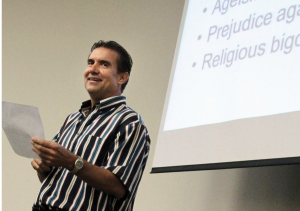Amanda Zurawski told NBC News exclusively that she finds the prospect of Texas restricting in vitro fertilization “absolutely terrifying.”
A woman who is suing Texas after she said she nearly died when doctors delayed giving her a medically necessary abortion tells NBC News exclusively that she plans to move her frozen embryos out of the state for fear Texas could stop providing in vitro fertilization.
The move by Amanda Zurawski and her husband, Josh, follows news that at least three fertility clinics in Alabama have paused in vitro fertilization treatments following a ruling by the state Supreme Court that found embryos are people who have the same legal protections as children — and that people can be held liable for destroying them.
Zurawski, 36, said on Thursday that she and her husband signed papers to move their embryos out of the state because she fears Texas could follow Alabama’s lead and block her from starting the family she’s spent years trying to build.
“I don’t want them in a state where a similar ruling could very likely take place,” she said of her embryos. “Everything about IVF is very anxiety-inducing. It’s very scary. It’s very difficult and rulings like this one in Alabama are just adding another layer of fear and anxiety.”
She added that she is concerned about the effects the ruling will have for patients in Alabama.
“My heart is broken for every hopeful parent in the state of Alabama and beyond because this isn’t going to stop in Alabama. This is going to have a snowball effect,” she said.
Zurawski is one of the lead plaintiffs in a lawsuit against Texas that is challenging the state’s near-total abortion ban and seeking to make the state allow doctors more discretion to intervene during medical complications. Zurawski said she nearly died in August 2022 after doctors refused to give her an abortion when she suffered catastrophic complications while 18 weeks pregnant. Eventually, Zurawski’s health deteriorated and doctors performed an abortion. But, she said she developed serious infections that led to sepsis and sent her to the intensive care unit for three days.
Since then, Zurawski and her husband have turned to in vitro fertilization and hope to have a baby through a surrogate after doctors advised her not to try to carry a baby again. She said she has been through three egg retrievals and now has two frozen embryos.
But she said she worries Texas laws will once again impact her journey.
“It’s absolutely terrifying,” Zurawski said. “But it’s also so infuriating because the same people who support the bans that nearly killed me are also in the same camp, who are now trying to make it harder for people like me to have a family.”
Zurawski said that soon after the Alabama Supreme Court ruling, she researched other clinics away from Texas that would be willing to take her embryos and companies willing to transport them. The process, she said, costs thousands of dollars.
“I think about the folks in Alabama who may be considering doing the same thing, and it’s not an option for everyone,” she said. “IVF in and of itself is already extremely expensive. And then, to add an additional layer of potentially needing to transport them. It’s just another expense. It’s more logistics. It’s more unknowns.”
Zurawski declined to say where she is moving her embryos.
“It’s to protect us,” she said of her decision not to reveal where the embryos will be transported. “It’s to protect our embryos. It’s to protect anyone who could be involved in our family planning.”
Meanwhile, Elisabeth Smith, director of state policy at the Center for Reproductive Rights, which filed the lawsuit on behalf of Zurawski and several other plaintiffs, said in a statement that the Alabama Supreme Court ruling is “extremely alarming.”
“It undermines people’s ability to make decisions about their own family planning via IVF,” Smith said. “This is part of the chaos we knew would ensue if Roe v. Wade was overturned. With politicians at the helm instead of doctors, reproductive health care is in crisis.”
Since the Supreme Court overruled Roe v. Wade in 2022, abortion has been banned or severely restricted in over a dozen states, according to an NBC News count.




